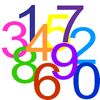Skip over navigation

What Makes a Good Mathematician?
Nurturing Successful Mathematicians
From Exploration to Consolidation
From Competitive to Collaborative
From Random to Systematic
From Introduction to Deeper Understanding


Or search by topic
Number and algebra
Geometry and measure
Probability and statistics
Working mathematically
Advanced mathematics
For younger learners
Becoming a Better Mathematician

Becoming a Better Mathematician
In this feature we have brought together groups of linked tasks. These tasks will provide you with the opportunity to develop the five key ingredients that we think make successful mathematicians. Take a look at the short student article below which gives more detail about each one and suggests ways to help you reflect on becoming a better mathematician.
What Makes a Good Mathematician? Age 5 to 16
Age 5 to 16
In this article for students, we outline what we believe are the five key ingredients that make a successful mathematician. Where are your strengths? What might you want to work on?
Nurturing Successful Mathematicians Age 5 to 16
Age 5 to 16
This short article explores what it means to be a successful mathematician.
From Exploration to Consolidation Age 5 to 11
Age 5 to 11
There are two pairs of tasks in this group. The first problem in each pair gives you the chance to explore a situation and then you'll need to apply what you have learnt to the second task.
From Competitive to Collaborative Age 5 to 11
Age 5 to 11
You can play each of these games by starting with the competitive version. Once you've got the hang of that, put your reasoning to the test with the collaborative version.
From Random to Systematic Age 5 to 7
Age 5 to 7
The tasks in this group invite you to find all possible solutions. Reflecting on other people's solutions as well as your own, can help you develop systematic ways of working.
From Introduction to Deeper Understanding Age 5 to 11
Age 5 to 11
These tasks all encourage you to explore and describe number patterns, and in particular give you the chance to use what you know about factors and multiples.
You may also like
Digging Into Geometry
Dig deeply into geometrical ideas by having a go at the tasks in this Primary student feature.
More Playing with Numbers Upper Primary
More resources to support understanding multiplication and division through playing with numbers

